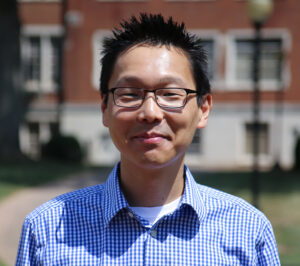
“Pandemic Education” is not the same as “Online Education”
I am often asked some version of the following question: “How has it been teaching online now?” For those of us who teach at schools with in-person learning, I imagine this is a common query from friends, family members, and colleagues. Initially, I gave answers that highlighted the sensations of newness, uncertainty, and adventure. Over time, I either expanded my answer to share what I was specifically learning or shortened my answer to a succinct summation like “it is going okay,” or “it is what it is,” based on the context of the conversation. For example, I opted for the latter replies, despite their triteness, at the beginning or the end of virtual meetings. What else is there to say when awkwardly waiting for other participants to join a Zoom call?
Now, after approximately ten months, my answer is that my transition has not been from in-person to online education. Rather, I am continuing to adapt to pandemic education, which is occurring in an online environment to ensure safe conditions for productive learning. Pandemic education and online education are not synonymous. As someone who is new to fully online instruction, I have certainly benefited from consultations with educational design experts at my seminary and engaging resources in the forms of best practice summaries, advice guides, podcasts, and more. Fortunately, wise counsel and practical guidance are a few clicks away on my web browser. At the same time, I cannot escape the multiple pandemics we are experiencing across public health, systemic racism, white Christian nationalism, and political polarization. When so many people are suffering and dying, and so much hate and falsehood infects our civic life, it feels small and strange to invest my energy in making a weekly online forum more accessible and interactive.
Therefore, I find it more generative to center the notion of pandemic education in my planning. As a theological educator, my students and I are constantly engaged in a collaborative learning process that seeks both comprehensive knowledge of the subject matter and concrete inquiry of why the subject matters in everyday congregations and ministry contexts. Teaching amid multiple pandemics has sharpened my focus on cultivating a pedagogical environment that thoroughly and precisely interrogates how the content in the syllabus intersects with what is actually happening in our churches and neighborhoods. One example in my teaching as an historian of American Christianity is to trace with students the legacies of racism, sexism, nativism, and heterosexism within some of our denominations and traditions. If my students and I only study the best of the past, exclusively reading the theologies and testimonies of those striving for justice and equality, we would be ill prepared to face the hard realities and complex challenges of Christian witness and leadership today. It is not enough to express perpetual shock at what actions, whether political insurrections or public health dismissals, bear the name of Jesus Christ. We must be able to identify origins and construct counternarratives. Some counternarratives will be rooted in the past, others will be adapted from the past to meet present conditions, and yet others will emerge as new creations.
I have found transitioning to pandemic education also requires a heightened awareness of the emotional, mental, physical, and spiritual health of my students. One of my teaching principles, which I share freely and often with my students, is to exhibit compassion without compromising academic integrity. I do not hesitate to grant extensions, seek creative solutions to problems with assignments, and offer as much pastoral care as I can. Yet, I also strive to fully honor the contributions of students who meet deadlines with meticulous attention to requirements and expectations. The context of theological education, with its wide diversity of adult learners, some carrying significant congregational, familial, or other personal responsibilities alongside their academic coursework, makes this principle necessary but sometimes complicated to practice. Pandemic education has certainly stretched this principle of practicing compassion without compromise. I have witnessed students produce remarkably brilliant work and experienced invigorating synchronous discussions abounding with insights over the past ten months. Yet, I have also encountered deep pain, loss, doubt, exhaustion, and hopelessness in my classroom. Not only in my interaction with students, but also in myself. In these dark moments, I am especially reminded that pandemic education is not the same as online education.
Leave a Reply